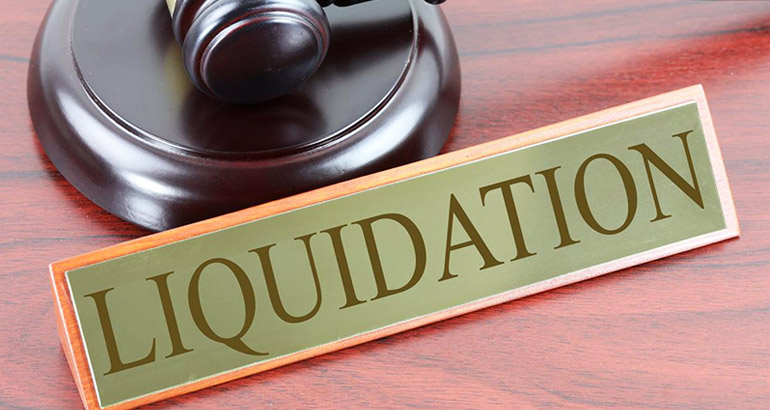The Facts About Company Liquidation Revealed
Table of ContentsThe Main Principles Of Company Liquidation Top Guidelines Of Company LiquidationThe Ultimate Guide To Company LiquidationThe 6-Second Trick For Company LiquidationUnknown Facts About Company Liquidation
A liquidator is specifically assigned to oversee the winding up of a business's events in order for it to be shut down usually when the business is going insolvent. The liquidator is a neutral 3rd party who manages the sale of firm possessions in order to repay any type of outstanding debts.Their role consists of, yet is not limited to: Neutral Overseer: A liquidator is tasked with functioning as an objective 3rd party to look after the entire company liquidation process. Produce Declaration of Affairs: Liquidators need to develop a detailed statement of affairs document. This paper is distributed to creditors, describing the current financial standing of the organization at the time of its liquidation.
After the liquidation of a company, its existence is removed from Firms House and it discontinues to be a lawful entity. If supervisors browsed the process uncreative, there would be no charges or individual liability for firm financial obligations expected. Currently, with a tidy slate, directors can discover new organization opportunities, though expert examination is suggested.
Getting The Company Liquidation To Work
If even more than 90% of all business shareholders agree, liquidation can take place on brief notification within seven days, the minimal statutory notification for financial institutions. Normally, the bigger the liquidation and the more possessions and funding the business has, the longer the process will take. 'Do I have to pay to liquidate my business?', the answer will depend on whether or not your company has any kind of possessions remaining when selling off.

We recognize that no 2 firms coincide, which is why we will make the effort to learn more about your service important site so we can suggest the finest course of activity for you. We only function in your ideal passions, so you can be entirely confident in the service we offer.
Company Liquidation Fundamentals Explained
In the UK, there is an established process to shutting down or restructuring a restricted firm, whether it is solvent or insolvent. This procedure is understood as liquidation and can only be handled by an accredited bankruptcy expert (IP) according to the Bankruptcy Act 1986. There are 4 main types of business liquidation process: Creditors' Voluntary Liquidation (CVL); Mandatory liquidation; Administration; and Members' Voluntary Liquidation (MVL).

In these circumstances, it is essential that the business discontinues trading; if business remains to trade, the directors could be held personally liable and it can result in the bankruptcy professional reporting wrongful trading, referred to as misfeasance, which may result in lawsuit. The supervisors select a bankruptcy specialist and once this has been agreed and confirmed, there is a conference with the investors.
The supervisors are no longer involved in what takes place, including the sale of the business's assets. If the supervisors desire any of the assets, they can inform the IP.
Excitement About Company Liquidation
The major difference is that the company's lenders related to the court for a winding up order which forces the bankrupt company into a liquidation process. In the majority of instances, lenders take this action as a last hope since they haven't gotten settlement via other kinds of negotiation. The court designates an insolvency specialist, likewise known as an official receiver, to conduct the obligatory company liquidation process.
This kind of company liquidation is not voluntary and supervisors' conduct is reported to the UK's Secretary of State once the liquidation process has actually been completed. As a result, any kind of supervisor that fails to coordinate with the IP or has actually been included in supervisor misconduct, or a fraudulent act, might lead to severe consequences (Company Liquidation).
It is utilized as a way to safeguard the business from any type of lawful activity by its creditors. The supervisors of the firm agree to make routine repayments to resolve their debts over a period of time.
The Single Strategy To Use For Company Liquidation
This provides the business with time to establish a strategy going onward to save the company and stay clear of liquidation. Nevertheless, at this point, directors hand control of the business over to the assigned administrator. If a firm is solvent but the directors and shareholders want to shut business, a Members Volunteer Liquidation is the right alternative.
The firm liquidation procedure is taken care of by a liquidator appointed by the supervisors and investors of the company and they have to sign a statement that there are no lenders remaining. The liquidation procedure for an MVL is similar to that of a CVL because properties are understood however the proceeds are dispersed to the directors and the shareholders Related Site of the company after the liquidator's charges have been paid.